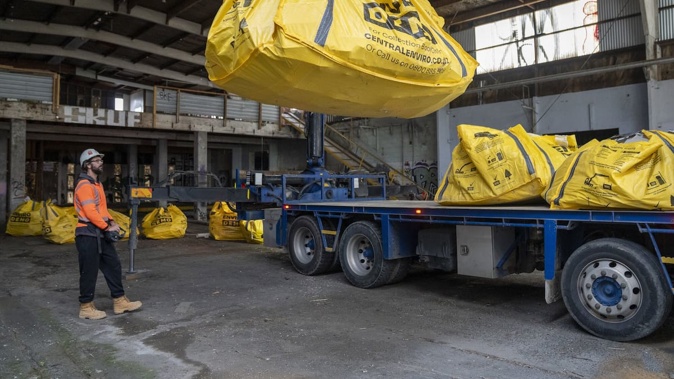

Hawke’s Bay has been piloting a new way to tackle one of the building industry’s most persistent waste streams - plasterboard.
Since the bag-based trial began in May this year, 13,938 kilograms of plasterboard waste was diverted from landfill.
According to the 2024 Solid Waste Analysis Protocol (SWAP) report, this waste accounts for 8% of Hawke’s Bay’s total waste tonnage.

Hawke’s Bay has been piloting a new way to tackle plasterboard waste.
Nationally, BRANZ estimates that 40% to 50% of New Zealand’s total waste to landfill is from construction and demolition sources.
Based on data supplied by Winstone Wallboards, it’s estimated that up to 840 tonnes of plasterboard waste generated in the region annually could be recycled.
The trial is led by Hastings District and Napier City Councils’ waste minimisation lead Geoff Gibson, and is a partnership with Winstone Wallboards, Central Environmental, and local building supply merchants, Carters, ITM, Mitre 10, and Placemakers.
Together, they’ve rolled out the straightforward but highly effective bag-based system that collects clean GIB plasterboard offcuts.
Gibson said what sets this trial apart is its simplicity and how easily it integrates into everyday site practices.
Plasterboard is made from a core of gypsum (calcium sulphate) sandwiched between layers of heavy-duty paper.
Depending on its use, it may include additives such as fibres, foaming agents, or moisture-resistant treatments, and it’s predominantly used for interior walls and ceilings in buildings.
The waste is bagged up and transported to Feilding by Central Environmental.

Construction and demolition waste make up a significant portion of what ends up in landfills.
There, the contents are weighed and inspected for contamination before being processed through a specially modified two-stage shredder.
The components are separated, with the paper sent for composting and the gypsum bagged and shipped back to Winstone Wallboards to be remanufactured into new GIB plasterboard.
Winstone Wallboards sustainability manager Jamie Rodriguez said the initial loads were 100% free of contamination, a critical success factor for closed-loop recycling.
“It was exactly the result we were aiming for, and great to see it play out in real-world conditions.”
Builders receive pre-labelled bags with their plasterboard deliveries, making it easy to separate offcuts on-site without disrupting workflows.
Plasterboard installer companies like Atlas Fibrous Plaster, the benefits are immediate.
Foreman John Reeves said the bags had offered an easy and convenient solution.
“The bags come with the GIB plasterboard delivery, and we just chuck the offcuts straight in as we go. There’s no extra hassle, and it feels good knowing it’s not all going to landfill.”
He said they were proud to be part of something that makes a difference and saves money.
Builder and merchant feedback is helping refine the trial and strengthen the case for making it permanent.
Participants also receive data showing the recycled weight per bag, which can be used for waste reporting or identifying areas for improved efficiency in their business.
The project signals a shift towards smarter, circular solutions in the construction industry.
The group hoped to see more builders using the bags until it becomes standard practice across the industry.
Take your Radio, Podcasts and Music with you









